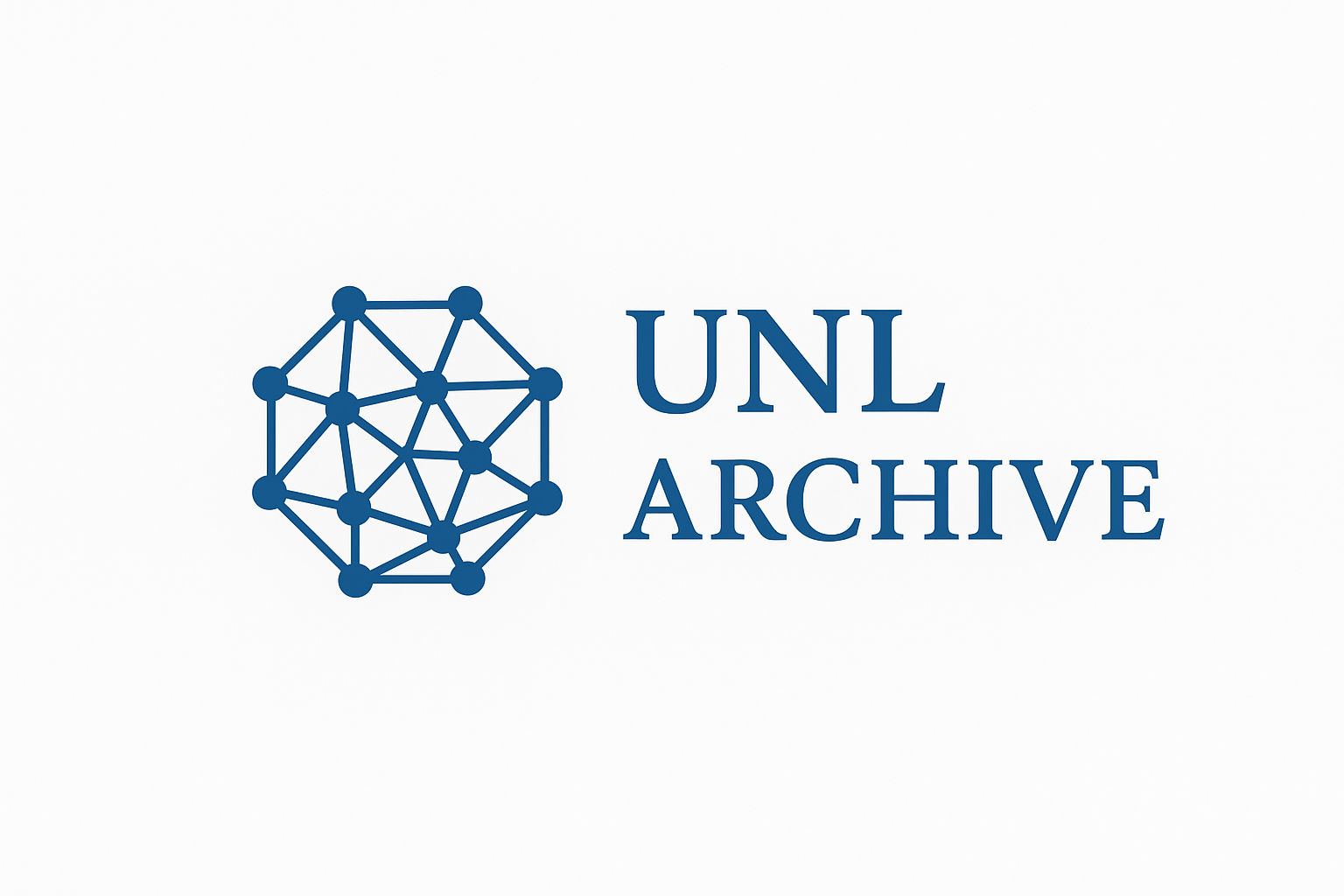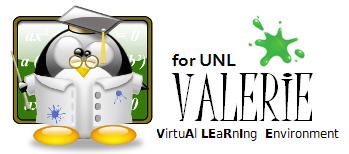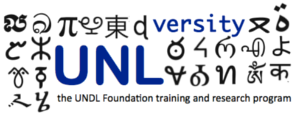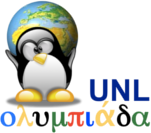

The UNL Education Programme was established by the UNDL Foundation to promote education, training, and engagement in the field of UNL. It was aimed to prepare linguists, translators, and computational language specialists to participate in the creation, management, and application of UNL resources and technologies.
The Programme consisted of three main initiatives, which complemented each other and covered different aspects of UNL learning and practice:

VALERIE (VirtuAl LEaRnIng Environment) was the e-learning platform of the UNL Education Programme. It was created by the UNDL Foundation to train linguists, translators, and language specialists in natural language engineering, with a special focus on the UNL and on the development of linguistic resources within the UNLarium environment. Although the platform is no longer active, it remains available as is for archival and reference purposes. Users may still access its contents and resources, but no further maintenance, updates, or technical support are provided by the UNDL Foundation. The information below summarizes the structure and objectives of the programme as it was originally conceived.
VALERIE was designed to teach and accredit participants to work with UNL-driven tools and resources. It provided open and free certification courses aimed at preparing candidates to contribute to UNL linguistic development. No prior experience in computational linguistics was required, though participants were expected to be familiar with descriptive linguistics and to have working knowledge of English.
To obtain a certificate, candidates were required to study the teaching materials available on the UNLwiki and complete a series of exercises and problem sets, which were automatically evaluated by the system. The entire process was self-paced and could be paused and resumed at any time.
The platform offered two main series of certificates, each comprising multiple levels with automatic evaluation and theoretical lessons. Successful candidates were granted permission to work within the UNLarium framework for the creation of linguistic resources.
CLEA was a series of certificates issued by the UNDL Foundation to train linguists in machine-oriented descriptive linguistics. It included four levels:
CUP was the certification programme devoted to training candidates to represent natural language phenomena in UNL. It included three levels:

The UNLversity was an initiative of the UNDL Foundation designed to promote education, research, and practical training in UNL and Computational Linguistics. It encompassed three main programs: the UNL Panel, which convened experts to discuss and refine the theoretical and technical foundations of UNL; the UNL Schools, a series of international workshops that trained language specialists and computational linguists in creating dictionaries, grammars, and corpora; and the UNL Internship, which provided hands-on experience for students and young researchers in the development of UNL resources.
The UNL Panel was established by the UNDL Foundation as part of the UNLversity initiative to promote academic discussion about the theoretical and technical aspects of the UNL. The panels brought together specialists from the UNL community and from the broader field of natural language processing to evaluate and revise the formal specifications of UNL. Two editions were held between 2012 and 2015, each focusing on a different foundational component of the UNL framework.
The I UNL Panel took place in Mumbai, India, on December 15, 2012, as an associated event to COLING 2012. It focused on the nature and role of Universal Words (UWs)—the nodes in the UNL semantic graph. The goal was to define principles for identifying, naming, and organizing UWs within the UNL Knowledge Base, ensuring consistency, universality, and interoperability across languages.
The panelists were:
The panel was chaired by Ronaldo Martins (UNDL Foundation) and organized at the Victor Menezes Convention Center, IIT Bombay. The discussions addressed key questions about the scope and identity of UWs, including:
The proceedings of this first panel were later published as:
MARTINS, R. (ed.) (2013). Lexical Issues of UNL: Universal Networking Language 2012 Panel. Cambridge: Cambridge Scholars Publishing.
The UNL Schools were a distinguished series of international workshops hosted by the UNDL Foundation from 2003 to 2014, dedicated to the advancement of linguistic resources within the UNL framework. Over the course of these events, the Schools became a beacon of cross-cultural cooperation and intellectual rigor, training language specialists and computational linguists to create foundational dictionaries, corpora, and sophisticated grammatical modules for natural language processing in a broad array of the world’s languages.
Spanning sixteen editions, the UNL Schools convened at diverse academic and cultural hubs, including Geneva (Switzerland), Mumbai (India), Alexandria (Egypt), Macau (China), Yerevan (Armenia), Patras (Greece), and Brasilia (Brazil). Each edition focused on languages relevant to the region or specific linguistic groups, contributing substantially to expanding UNL’s reach. Languages ranged from European tongues such as Croatian, Danish, and Greek, to South Asian languages including Hindi and Bengali, to indigenous South American languages like Quechua and Guarani, as well as many more.
Every workshop was a meticulous 30-hour immersion lasting five days, where participants developed lexical entries, morphological inflections, syntactic frames, and semantic grammars, using web-based integrated development environments such as UNLdev. The Schools were designed for native speakers and experts who met stringent academic and certification criteria, fostering a community deeply knowledgeable and passionate about language engineering. Financial support was offered to enable attendance from diverse locales, underscoring the inclusive and global nature of the initiative.
The UNL Schools were more than technical training sessions; they were pioneering forums that helped build a shared linguistic infrastructure for machine translation, multilingual information retrieval, summarization, and semantic reasoning. This effort significantly contributed to the vision of UNL as a tool to reduce language barriers and promote cross-cultural understanding under the auspices of the United Nations.
Though now discontinued, the legacy of the UNL Schools endures as a testament to collaboration, innovation, and dedication to linguistic diversity and technology. They remain a cherished chapter in the history of natural language processing, inspiring future generations to continue bridging human languages through the power of artificial languages and computational linguistics.
The UNL Schools were held in the following locations and years:
The UNL Internship was part of the UNLversity initiative, created by the UNDL Foundation to offer practical training opportunities in Computational Linguistics for students and young researchers. The program was devoted to preparing participants for the creation and development of linguistic resources—such as dictionaries, grammars, knowledge bases, translation memories, and corpora—for UNL-driven projects.
The internship was open to students enrolled in undergraduate or graduate programs in Languages, Linguistics, Computational Linguistics, Natural Language Processing, or related fields, in Switzerland or abroad. It could be pursued remotely (online) or on-site at the UNDL Foundation headquarters in Geneva. The programme combined theoretical training with supervised project-based work, promoting hands-on experience in language resource engineering.

The UNL Olympiad stands as a prestigious series of international competitions, organized by the UNDL Foundation, dedicated to advancing the development of grammatical resources within the UNL framework. In its time, the Olympiad was a driving force that fostered innovation and skill in designing and implementing UNL and natural language grammars, nurturing a global community of language engineers committed to excellence. It unfolded in successive editions from 2013 to 2014, each centered on creating and refining dictionaries and grammar modules for UNLizing (transforming natural language into UNL representation) and NLizing (generating natural language from UNL). These competitions were open to all participants meeting language-specific criteria and featured prizes recognizing outstanding grammar development achievements.